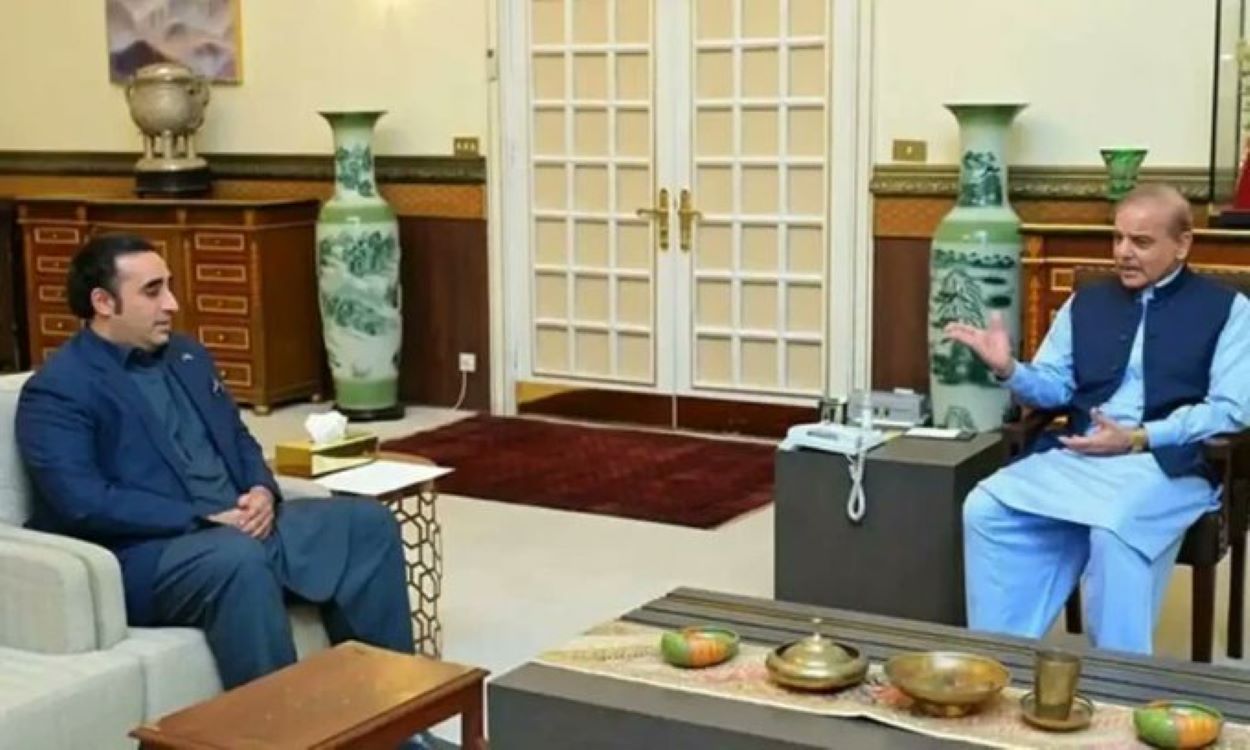After the judiciary-focused 26th Amendment earlier this month, Prime Minister Shehbaz Sharif and PPP Chairman Bilawal Bhutto Zardari today discussed a “27th constitutional amendment focused on provincial rights,” sources reported.
Both leaders commended the successful adoption of the 26th Constitutional Amendment on October 21 and acknowledged the support of their allies.
Prime Minister Sharif expressed his gratitude to the PPP for aiding the PML-N-led coalition government in pursuing economic stability and reaffirmed their commitment to national service.
He noted significant disinflation and other positive economic trends resulting from the coalition government’s policies.
The PPP chairman vowed to collaborate with the ruling PML-N to fortify democracy and the parliament, describing the 26th Amendment as pivotal in thwarting undemocratic forces.
They agreed to consult other parties, including Jamiat Ulema-e-Islam-Fazl (JUI-F) and Muttahida Qaumi Movement-Pakistan (MQM-P), on upcoming legislation.
Rana Sanaullah, the PM’s adviser on Political and Public Affairs, said that top coalition leaders had deliberated the 27th Amendment in Lahore.
He mentioned ongoing discussions to include legislation sought by various parties, although consensus on some points remains pending. Sanaullah highlighted MQM-P’s request to amend Article 140A to strengthen local governments, including equitable funding.
He noted that both parties agreed to continue discussions under the Special Parliamentary Committee chaired by PPP’s Khursheed Shah.
Dismissing criticism of the 26th Amendment, the PM’s aide called it flawless judiciary-focused legislation and asserted that no constitutional amendment would proceed without broad consensus.
Following extensive discussions, the government passed constitutional amendments, including a fixed three-year term for the Chief Justice of Pakistan (CJP) and a 2028 deadline to end interest-based banking, a change pushed by JUI-F’s Maulana Fazl-ur-Rehman.
However, the major opposition party, PTI, vehemently opposed the judicial reforms, labelling them an assault on judicial independence and vowing to repeal the amendments if returned to power.






